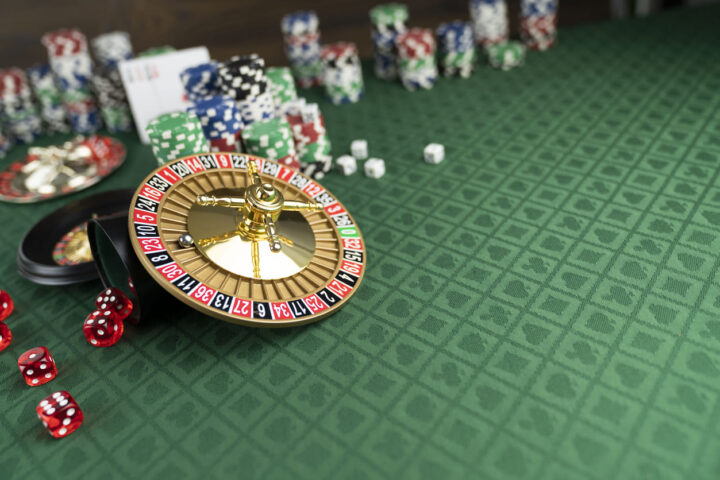Most people think casino success is about luck, emotion, or the “feeling” that a certain game is about to turn. The real answer is much simpler and much more grounded in reality: consistent wins come from data, structure, and disciplined decision-making, not intuition.
In other words, players who treat gambling like chaos usually lose, but players who treat it like a system, tracking numbers, managing risk, and sticking to mathematical frameworks, give themselves a measurable advantage in the long run. This does not mean you can force the house edge to disappear.
What it means is that you can eliminate the mistakes that drain bankrolls, understand probabilities with more clarity than other players, and use knowledge to protect your money instead of handing it over. That combination, data and discipline what separates serious players from casual ones.
Why Knowledge Beats Impulse in Every Casino Environment
The first thing every successful player learns is that casinos do not hide their math. Every game has a published house edge. Every rule can be analyzed. Every probability can be broken down. Yet most players ignore the information that is sitting right in front of them and instead make decisions based on emotions like fear of missing out, excitement, or frustration.
Data-driven players do the opposite. They reduce the environment to numbers, remove the emotional noise, and let probability steer every move. That alone eliminates half of all losing behavior instantly: chasing losses, doubling bets out of anger, switching games too quickly, or betting just because “it feels like the right moment.”
A simple example: a roulette wheel with 37 or 38 pockets behaves according to clear mathematical odds. Whether you “have a feeling” that red will appear does not change anything. A disciplined player, however, looks at the same wheel and sees structured rules: true probability, payout ratios, variance expectations, and bankroll risk assessment.
That is the real difference. Both players stand in front of the same wheel. Only one sees a system.

Data Isn’t Magic; It Is Structure
To show how data affects decision-making, here’s a basic table comparing what casual vs. structured players focus on:
Table ─ Casual Play vs. Data-Driven Play
| Player Type | Mindset | Decision Basis | Long-Term Outcome |
| Casual Player | Emotional | Intuition, impulse, superstition | Inconsistent and usually negative |
| Data-Driven Player | Analytical | Probability, bankroll rules, expected value | Stable control, minimized losses, occasional strategic wins |
Once you start thinking like the second column, the entire casino world becomes more predictable, less stressful, and significantly more manageable.
Understanding Variance, Risk, and Bankroll Management
Every game includes variance – the natural swings of wins and losses. Most players underestimate how brutal variance can be. That is why bankroll management is the backbone of all intelligent casino behavior. Without it, even the best strategies fall apart.
Here is a simple truth: no bankroll survives long-term without structure.
Bankroll Management Fundamentals
- Never risk more than 1–3% of your total bankroll on a single bet
- Use risk tiers (low, moderate, high) to decide bet sizes
- Track every session, wins, losses, bet size, and emotional decisions
And most importantly: stick to the rules during both good and bad runs. Many players follow discipline only until something emotional happens. They win too fast and suddenly raise bets dramatically. Or they lose and start chasing. Both destroy the entire structure.

Here is a table summarizing expected volatility in common casino games:
Table ─ Variance Levels in Popular Casino Games
| Game | Variance Level | Why It Matters |
| Blackjack | Low to Moderate | Decisions strongly affect outcomes; skill reduces variance |
| Roulette | High | No influence over outcomes; purely probability-driven |
| Baccarat | Low | Simple structure, predictable long-term results |
| Slots | Very High | Wide swings, unpredictable payouts, highest volatility |
| Sports Betting | Moderate to High | Dependent on analysis, value evaluation, and market lines |
Variance cannot be removed, but it can be managed. That is where discipline enters the picture.
The Psychology of Winning ─ Discipline Over Drama
When people talk about “lucky” gamblers, what they usually describe is someone who had one good session, not someone who consistently wins. Consistency depends on psychological discipline, which includes:
- resisting impulsive bets
- shutting down emotion-driven behavior
- sticking to mathematical expectations
- leaving the table when the rules say so
Losses happen even to the smartest players. The difference is that smart players survive losses because they do not self-destruct afterward.
There is also the concept of decision fatigue. After a long session, concentration drops, emotional tolerance drops, and bad decisions spike. Disciplined players know their limits and stop before fatigue becomes expensive.
The Intersection of Knowledge and Modern Tools
We live in an era where analyzing probabilities is easier than ever. Data platforms, trackers, calculators, and statistical tools give everyday players the kind of insights that used to be exclusive to professionals. This is where structured casino strategies come into play, frameworks built on transparent rules rather than intuition.
These resources help with:
- Comparing house edges
- tracking player decisions
- analyzing outcomes
- identifying value opportunities
- understanding risk profiles
Using tools doesn’t guarantee wins. It guarantees smarter choices.

Building Your Own System ─ A Framework for Rational Play
A well-structured player usually builds their system around three pillars:
1. Game Knowledge
Know the rules, the odds, the payout structure, and the expected value of every decision.
2. Risk Control
Use predefined betting units, loss limits, and win limits.
3. Behavioral Discipline
Never violate your operating rules even when emotions spike.
Below is a sample structure players often use (adjustable to personal style):
Table ─ Sample Structured Casino Session Plan
|
Element |
Example Rule |
| Starting bankroll | 100 units |
| Max bet per hand/spin | 2 units |
| Stop-loss limit | 20% of bankroll |
| Stop-win limit | 30% of bankroll |
| Session length | 60–90 minutes |
| Emotional break condition | 3 losses in a row trigger 1a 0-minute break |
These guidelines look simple, but they protect bankrolls better than any “lucky charm” ever invented.
Turning Knowledge Into an Advantage
The real win in casinos does not always come from beating the house. It comes from beating your own impulses, avoiding financial traps, and maintaining a calculated decision-making structure that protects your money. Data removes the fog. Discipline removes the chaos. Together, they form a system that gives players long-term stability in an environment designed to exploit emotional weakness.
There is always luck in gambling, but luck is never the foundation of long-term success. Knowledge is.

